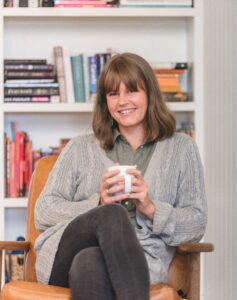In a world flooded with global disasters and mental health conditions like eco-anxiety on the rise, author of the bestselling self-help book, Slow, Brooke McAlary, unveils the pitfalls of neglecting personal care in her new book, Care.
Brooke McAlary’s own experience with post-natal depression was the catalyst for her self-care journey and marked the beginning of her career change from business woman to self-help author. After the overwhelming success of her 2017 international bestseller Slow: Simple Living for a Frantic World, Brooke returns to share her latest tips to live a slow and joyful life, through her latest book, Care: The Radical Art of Taking Time, published by Allen & Unwin.
After receiving her post-natal depression diagnosis following the birth of her second child, it was Brooke’s therapist who first recommended slowing down. This wake-up call prompted Brooke’s change of pace and her ensuing move to the Southern Highlands with her family. Burned out by her past career running a jewellery business, along with raising two young children and juggling excessive commitments, the self-care author reveals how she knew something had to change.
Brooke says, “Looking back, I can see my mental health started to take a dive…I write about slow, because I need slow, it’s not something that comes naturally.”

In her book, Brooke tackles the exploitative nature of the wellness industry. The industry has high stakes in profiting from the growing market for self-care, reeling in nearly $4.5 trillion and representing 5.3% of global economic spending.
With increasing mediums for internet users to be inundated by advertisements and marketing campaigns, it is becoming easier for corporations to exploit the rising population of people seeking solutions to stress and burnout. Brooke says, “If you are buying into certain elements of self-care because you think there’s something wrong with you, you become vulnerable to that marketing message.”
Wellness services have flooded the market, many of which have been accused of charging exorbitant fees and exploiting desperation. Brooke challenges the exclusive tactics of self-care corporations, and offers a more accessible path to wellbeing in her guide.
“Everything I write about needs to be accessible to everyone, regardless of finances, geography, abilities,” Brooke says.
It helps if you’re already well, you’re slim and you’re 25, that kind of mentality is what has attached itself to self-care.
“In keeping with the idea of accessibility, I really wanted it to be achievable for people who are busy, which is a lot of people. If you’ve got thirty seconds, you can spend those thirty seconds looking out a window at a green view, you can write down one lovely thing that you saw today or you could hold the door for a stranger.”
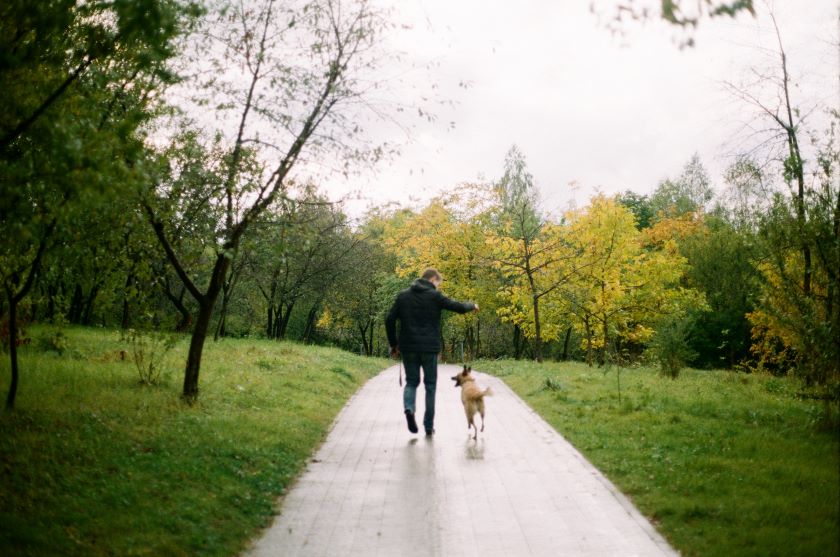
Brooke unpacks the ideas of ‘Big Care’ and ‘Small Care’, and their significance in the past year where ‘Big Care’ has had a major global impact of “upheaval and collective grief,” with the climate change crisis and the COVID19 pandemic. While she acknowledges that these two types of ‘care’ don’t exist in a vacuum, she also identifies why we need to prioritise the ‘Small Care’ sometimes.
Brooke says, “I realised I had spent so much time and energy caring about all of these big, important global collective issues like climate change, COVID, the national grief we’re all feeling as a result of last year’s bushfires, but what I had neglected was the other end of the spectrum of care, the small acts of care.
“That is the genesis of the spectrum of care I talk about in the book. The reason we need to start spending more time on the smaller end of the spectrum.”
Brooke’s call for greater self-care and mental health awareness is all the more pertinent, with stress and burnout rapidly increasing among the population. Asana’s global study found that 4 in 5 Australians in white-collar jobs suffered burnout in 2020.
While a variety of symptoms are reported, the main signs often include:
- Fatigue
- Brain Fog
- Maladaptive Daydreaming
- Lack of Motivation
- Sleep Issues
- Frequent Illness
With smartphone users clocking in 3 hours and 15 minutes a day and technology infiltrating all aspects of people’s lives, Care brings to light the role technology plays in exacerbating burnout and stress.
Fighting the temptation to keep scrolling on social media is hard when “it feels good in the short term because it releases dopamine”, Brooke says, but she maintains the need to substitute internet usage with more fulfilling activities.
Our phones, our laptops, our screens can be viewed much more like a tool… something you use for a job and then you put it away.
Brooke advises people to partake in hands-on activities outside of technology, suggesting that physical activities like yoga can positively affect the brain and even just “looking into the eyes of animals can release oxytocin”, also known as ‘the love hormone.’
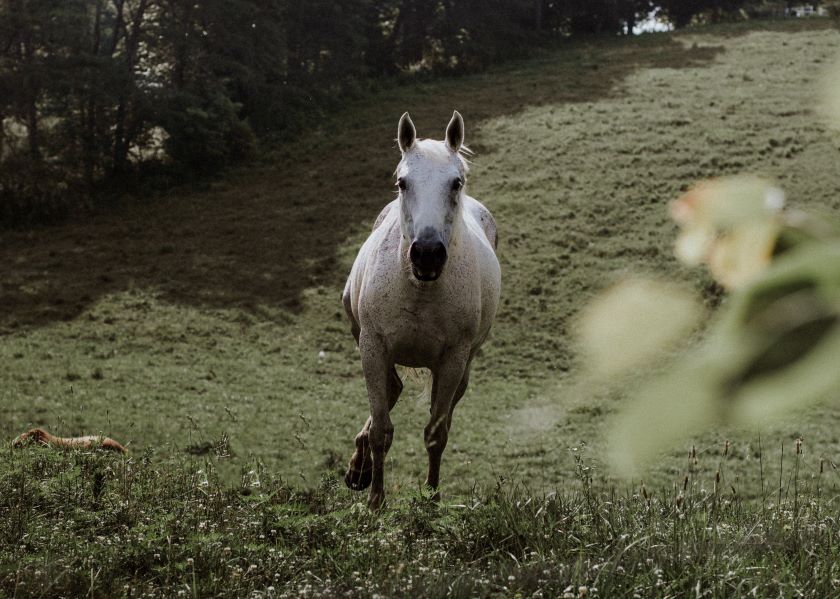
Brooke says, “If there’s an opportunity to go for a walk, or to sit and do something tech-related, I use that information for motivation.”
In her own life, Brooke has implemented this concept for her family, with her children creating a technology-free ‘slow room’ to help reduce outside sources of stress. She says, “I started experimenting and started to declutter and was astounded to find the impact it had on my mental health.” It was this realisation of how switching off can bring joy that inspired Brooke to share this practice with her children.
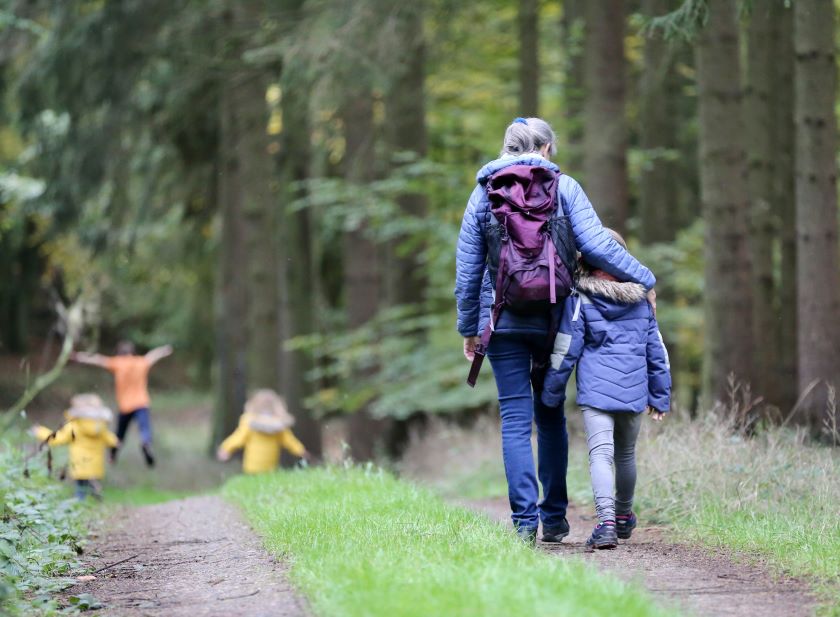
Brooke also outlines how ‘Small Care’ can affect our perception of time, revealing how anyone can harness the ability to “bend time” and alter their experience of its passage.
“As I get older, as my kids get older, I feel like time speeds up. That made me curious about why there were times in my life where time seemed to feel like more,” Brooke says.
Research shows that our perception of time changes as we grow older. When we’re a child everything is new. As a result, time feels like it goes on for longer… That is the simplest way to bend time.
Brooke says when people’s lives become monotonous and repetitive, the brain doesn’t hold on to those memories, thus creating the illusion of time passing quickly. In Care, Brooke encourages individuals to embrace the sense of play and wonder from childhood, to slow down their perception of time and make space for ‘Small Care.’
Featuring Brooke McAlary, author of Care: The Radical Art of Taking Time.
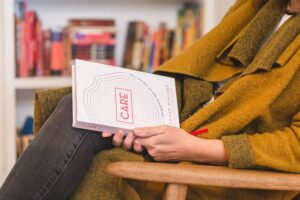
If you’d like to learn more about Brooke’s work, watch our exclusive interview with her below.




